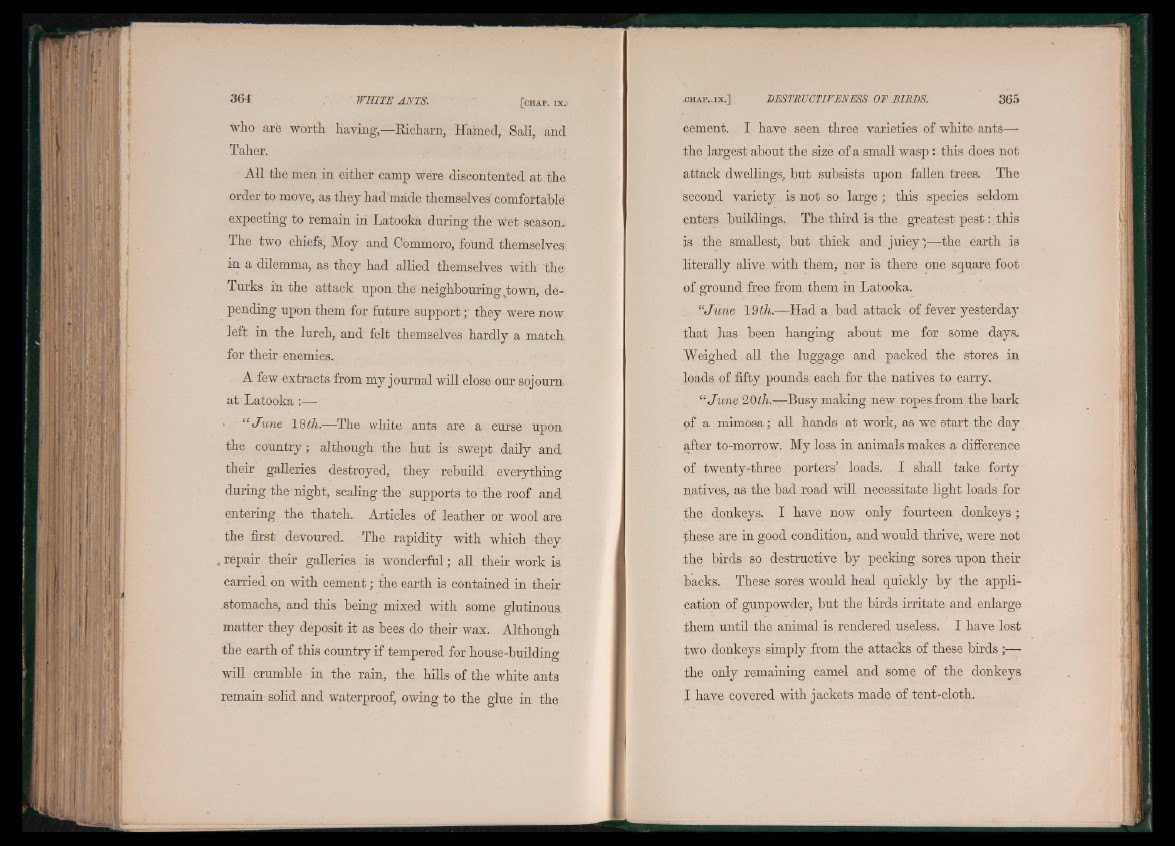
who axe worth having,—Bicharn, Hained, Sali, and
Taher.
All the men in either camp were discontented at the
order to move, as they had made themselves comfortable
expecting to remain in Latooka during the wet season.
The two chiefs, Moy and Commoro, found themselves,
in a dilemma, as they had allied themselves with the
Turks in the attack upon the' neighbouring ^town, depending
upon them for future support; they were now
left in the lurch, and felt themselves hardly a match
for their enemies.
A few extracts from my journal will close our sojourn
at Latooka — -
- “June 18th.—The white ants are a curse upon
the country; although the hut is swept daily and
their galleries destroyed, they rebuild everything
during the-night, scaling the supports to the roof and
entering the thatch.. Articles of leather or woof are
the first- devoured. The rapidity with which they
, repair their galleries is wonderful; all their work is
carried on with cement; the earth is contained in their
.stomachs, and this being mixed with some glutinous
matter they deposit it as bees do their wax. Although,
the earth of this country if tempered for house-building
will crumble in the rain, the hills of the white ants
remain solid and waterproof, owing to the glue in the
cement. I have seen three varieties of white ants—-
the largest about the size of a small w asp: this does not
attack dwellings, but subsists upon fallen trees. The
second variety is not so large; this species seldom
enters buildings. The third is the greatest p e st: this
is the smallest, but thick and juicy‘—the earth is
literally alive with them, nor is there one square foot
of ground free from them in Latooka.
“June 19 th.—Had a bad attack of fever yesterday
that has been hanging about me for some days.
Weighed all the luggage and packed the stores in
loads of fifty pounds each for the natives to carry.
“June 20 th.—Busy making new ropes from the bark
of a mimosa; all hands at work, as we start the day
after to-morrow. My loss in animals makes a difference
of twenty-three porters’ loads. I shall take forty
natives, as the bad road will necessitate light loads for
the donkeys. I have now only fourteen donkeys ;
these are in good condition, and would thrive, were not
the birds so destructive by pecking sores upon their
backs. These sores would heal quickly by the application
of gunpowder, but the birds irritate and enlarge
them until the animal is rendered useless. I have lost
two donkeys simply from the attacks of these birds;—
the only remaining camel and some of the donkeys
I have covered with jackets made of tent-cloth.